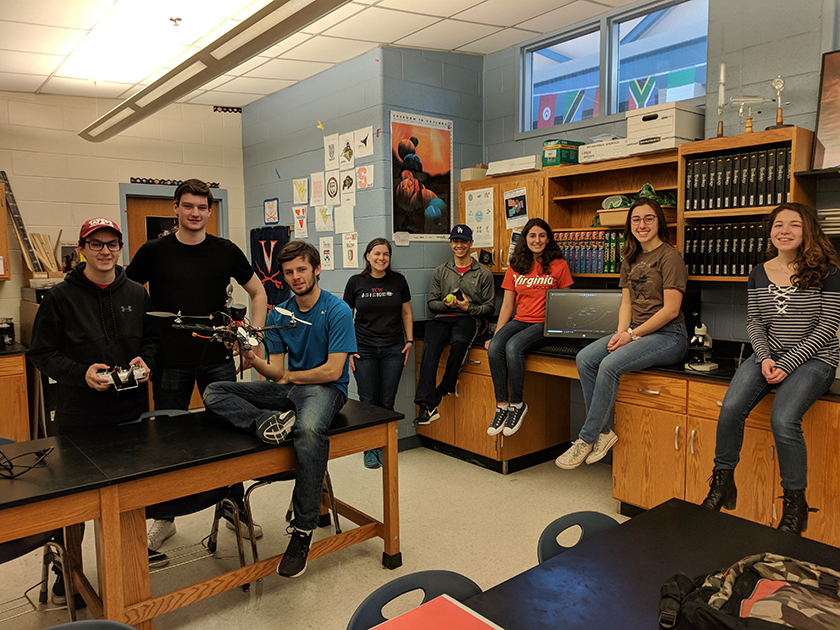From drones to hydroponic gardens, students have freedom to pursue answers to their scientific questions

The strength of TC Williams High School in Alexandria, Virginia is its diversity—cultural, linguistic, and socioeconomic—says Shawn Lowe, a science teacher at the school. Her students are interested in doing science fair projects, but lack the funds to pursue them.
“Having equipment available allows every student to pursue their questions and conduct authentic science research, regardless of socioeconomic means,” she said.
Fortunately, a STEM Research Grant from the Society for Science & the Public has allowed Shawn to purchase much-needed equipment. So far this year, she has supported 24 students as they completed projects to present at science fairs—triple the previous number of students.
“Without the grant, I would not have had the freedom to purchase the equipment needed,” Shawn said.
The grant gave students the tools necessary to build a drone and a hydroponic garden, study the spread of bacteria, create a biodegradable plastic, write computer programs to study cyber security, and more.
Having equipment available allows every student to pursue their questions and conduct authentic science, regardless of socioeconomic means.
“The grant has directly impacted about 20 science fair projects that would otherwise not be available, provide opportunities this year to about 40 students, and will expand in the next few months as my students do outreach to elementary and middle school students, expanding exposure to hands-on scientific inquiry,” Shawn said.
For example, one student is working on an inexpensive hydroponics system for low-income apartment dwellers.
“Hydroponic systems are quite expensive, ranging from $200 to over $1,000. A low-cost hydroponic system can be around $169 to set up. This is expensive for me or a high school student with no income, and so I am very thankful that I was able to pay for my costs through the Society’s STEM Research Grant,” the student explained.

He pursued this project to fight against food deserts, which are urban areas where affordable fresh food is not available—prevalent in low-income areas.
The STEM Research Grant also allowed Shawn to purchase materials for another group of students to build a drone.
“Without these materials, we would not have been able to build a drone, and wouldn’t have had a project. The impact has been huge—with these materials we have been able to create a machine that will be able to fly autonomously, and that we are very proud of,” the students explained.
The grant may have directly affected these young scientists while enrolled at TC Williams High School, but its impact in their lives won’t end there. Many will go on to study STEM subjects in college, including the students who built the drone—who plan on becoming engineers.


